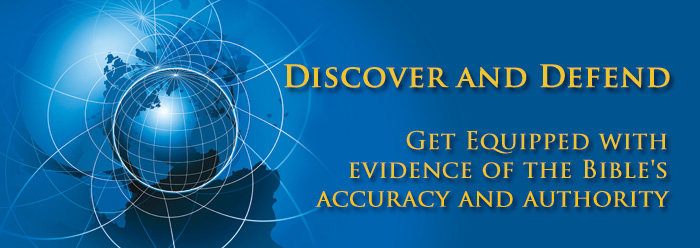Introduction
Job
Introduction to Job
Except for the first eleven chapters of Genesis, which almost certainly were originally written by Adam, Noah, the sons of Noah, and Terah, then eventually edited by Moses (compare with “Introduction” to Genesis), the book of Job is probably the oldest book in the Bible. It contains more references to Creation, the Flood and other primeval events than any book of the Bible except Genesis, and provides more insight into the age-long conflict between God and Satan than almost any other book. Remarkably, it also seems to contain more modern scientific insights than any other book of the Bible.
Uniform Jewish tradition ascribed the book of Job to Moses and also accepted it as part of the true canon of Scripture. This ascription seems quite reasonable if Moses is regarded as the editor and original sponsor of Job’s book rather than its author. Undoubtedly Job himself was the original author (Job 19:23,24), writing down his memoirs, so to speak, after his restoration to health and prosperity. Moses most likely came into possession of Job’s record during his forty-year exile from Egypt in the land of Midian (not far from Job’s own homeland in Uz), and quickly recognized its great importance, perhaps slightly editing it for the benefit of his own contemporaries. It was all probably similar to how he compiled and organized the primeval records from which he has also given us the book of Genesis.
Job, according to God’s own testimony, was the most righteous and godly man in the world, at least up to that time (Job 1:8; 2:3). That he was a real historical person, and not just a fictional character in a great dramatic poem, as some have alleged, is confirmed in Ezekiel 14:14,20, and James 5:11. Paul quotes from Job 5:13 in I Corinthians 3:19.
Job evidently lived about the time of Abraham. It is significant that, despite the prevalent ancient tradition of Moses’ connection with the book, the book of Job nowhere mentions the Mosaic laws or even the children of Israel. It clearly was written well before the time of Jacob (“Israel”). The land of Uz, where Job lived as “the greatest of all the men of the east” (Job 1:3, a geographical reference probably inserted by Moses, since Uz was east of Midian) and “dwelt as a king in the army” (Job 29:25), was later to become the land of Edom (compare Lamentations 4:21). Quite possibly it was originally settled by Uz himself, who was a grandson of Shem (Genesis 10:22,23). The antiquity of the time of Job is further indicated by the fact that he probably lived at least two hundred years (Job 42:16), longer even than Abraham (Genesis 25:7).
Job’s book is considered a masterpiece of literature, even by those who reject its historicity and/or its divine inspiration. Its pervasive theme—one of interest in all times and places—is the mystery of the suffering of the righteous in a world created by a righteous and omnipotent God. However, though this may be the theme of the book, that is not its purpose, for the book never answers that question. Even God, in His remarkable four-chapter monologue (Job 38–41) at the end of the book, never even mentions the question at all. Rather, God emphasizes the vital importance of the doctrine of special creation and the sovereign right of the Creator to use and test His creatures as He wills. He is never unjust and never capricious, and we must simply rest and rejoice in that fact by faith.




